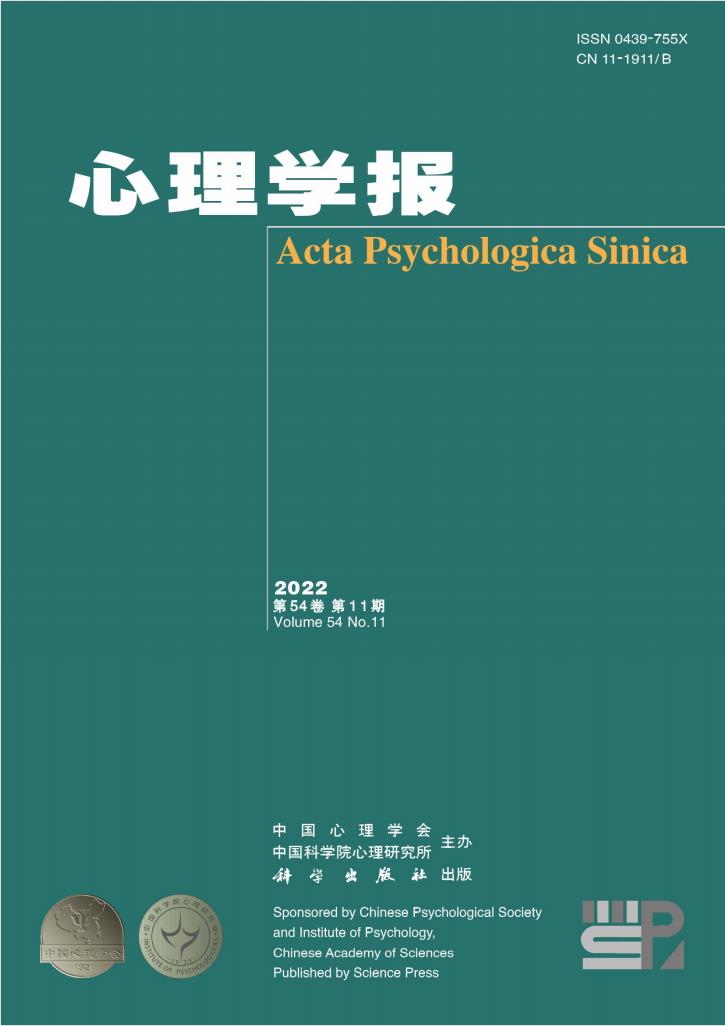愤怒对延迟折扣的影响:确定性和控制性的中介作用
IF 1.3
4区 心理学
Q3 PSYCHOLOGY, MULTIDISCIPLINARY
引用次数: 2
摘要
同时,我们探讨了与确定性控制相关的积极情绪是否会增加延迟满足。研究的重点是快乐是一种积极的、与确定性控制相关的情绪。在实验1中,结果显示,与恐惧和中立的参与者相比,愤怒的参与者更倾向于选择大的和延迟的奖励。在实验2a中,结果显示,与恐惧和神经参与者相比,愤怒的参与者更有可能体验到确定性控制感。实验2b的结果表明,与低确定性控制的被试相比,高确定性控制的被试更倾向于选择大奖励和延迟奖励。在实验3中,结果表明,与恐惧和中立的参与者相比,愤怒和愉快的参与者经历了更多的确定性控制感,更有可能选择大的和延迟的奖励。此外,中介分析表明,确定性控制情绪在愤怒和快乐对延迟折扣的影响中起完全的中介作用。三个实验的证据表明,偶然的愤怒会影响延迟折扣。与恐惧情绪和中性情绪相比,愤怒情绪更倾向于选择更大的、延迟的奖励(实验1)。重要的是,这两个实验提供了直接的过程证据,表明愤怒触发的确定性和控制性评价倾向可能是其延迟满足增强效应的基础(实验2和实验3)。此外,体验确定性控制相关情绪(即愤怒和快乐),无论其效价如何,(实验3)。目前的研究支持愤怒会增加延迟满足的假设,确定性和控制评价倾向驱动了这种效应。这些发现对于理解特定负面情绪对跨期选择的影响机制具有重要意义。本文章由计算机程序翻译,如有差异,请以英文原文为准。
The influence of anger on delay discounting: The mediating role of certainty and control
Simultaneously, we explored whether positive emotions associated with certainty-control produced increases in delay gratification. The focus was on pleasure as a positive, certainty-control-associated emotion. In Experiment 1, the results showed that compared with fear and neutral participants, angry participants were more likely to choose large and delayed rewards. In Experiment 2a, the results showed that compared with fear and neural participants, angry participants were more likely to experience certainty-control feelings. Then, in Experiment 2b, the results showed that compared with low certainty-control participants, high certainty-control participants were more likely to choose large and delayed rewards. In Experiment 3, the results showed that compared with fear and neutral participants, angry and pleasant participants experienced more certainty-control feelings and were more likely to choose large and delayed rewards. Furthermore, the mediation analysis showed that certainty-control feelings played a complete mediating role in the effect of anger and pleasure on delay discounting. Converging evidence from the three experiments indicated that incidental anger can influence delay discounting. Compared with fear and neutral feelings, those experiencing anger were more likely to choose larger and delayed rewards (Experiment 1). Importantly, these two experiments provide direct process evidence by showing that the certainty and control appraisal tendencies triggered by anger may underlie its delay gratification-enhancing effects (Experiments 2 and Experiment 3). Furthermore, experiencing certainty-control-associated emotions (i.e., anger and pleasure), regardless of valence, increased to the likelihood that individuals would choose larger and delayed rewards (Experiment 3). The current research supports the hypotheses that anger increases delay gratification and that certainty and control appraisal tendencies drive this effect. These findings have important implications for understanding the mechanism underlying the effect of specific negative emotions on intertemporal choice.
求助全文
通过发布文献求助,成功后即可免费获取论文全文。
去求助
来源期刊

心理学报
Psychology-Psychology (all)
CiteScore
1.70
自引率
13.30%
发文量
1612
期刊介绍:
Acta Psychologica Sinica (ISSN 0439-755X) is a scholarly journal sponsored by the Chinese Psychological Society and the Institute of Psychology, Chinese Academy of Sciences, and published monthly by the Science Press.
Acta Psychologica Sinica has been included in many important national and international indexing systems such as SCOPUS (Elsevier), ESCI (Web of Science), PsycINFO (APA), CSCD. It is the flagship journal of the Chinese Psychological Society that publishes peer-reviewed original empirical studies and theoretical articles spanning the entire spectrum of scientific psychology.
Acta Psychologica Sinica publishes high-quality research that investigates the fundamental mechanisms of mind and behavior and aims to deliver scientific knowledge to enhance our understanding of culture and society. It welcomes submissions of manuscripts reporting research that is up-to-date, scientifically excellent, and of broad interest and significance.
 求助内容:
求助内容: 应助结果提醒方式:
应助结果提醒方式:


